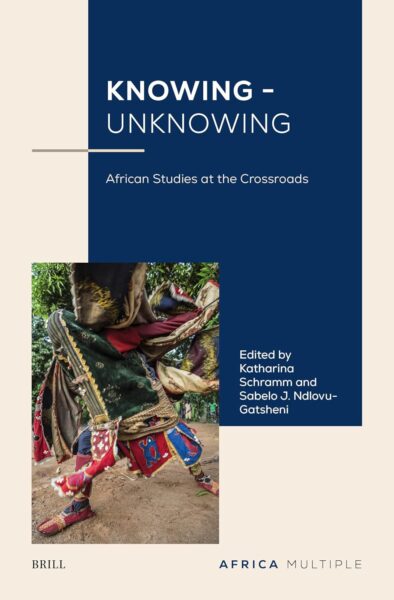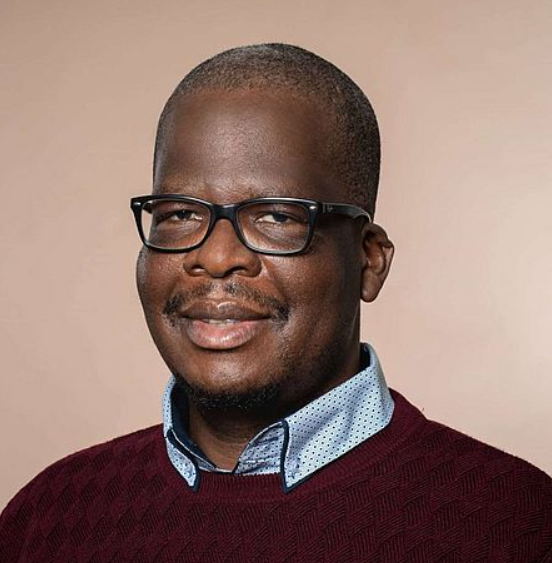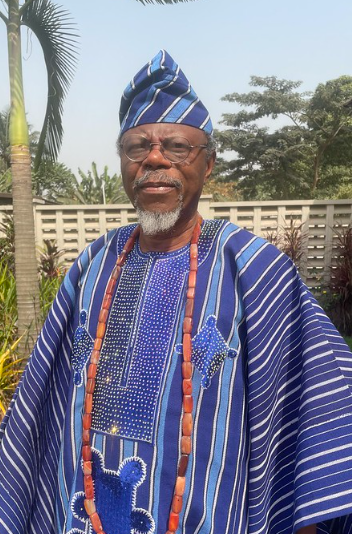Toyin Falola
I remain grateful to Professor Sabelo Ndlovu-Gatsheni, who sent me a copy of his co-edited book with Professor Katharina Schramm, published in the Africa Multiple Series by Brill. Titled Knowing-Unknowing: African Studies at the Crossroads, it contains beautifully written chapters on the reimagination of the broad field of African Studies. In my reimagination, I recently announced the creation of a slice of African Studies, which I called “African Ancestral Studies,” to shift to what can be rescued and deployed in practical terms. In this short piece, I reflect on the contents of the Knowing-Unknowing within the epistemic pillar of the text itself.

Knowing – Unknowing puts African epistemology’s dynamic and contentious character forward. The book critically interacts with African studies, confronting colonial legacies and providing innovative routes for reevaluating knowledge production. The book revolves partly around the metaphorical frame of Chinua Achebe’s comment, “The world is like a mask dancing.”. This implies that knowledge itself, as well as comprehension of Africa, needs movement, openness, and flexibility. The book takes this dynamic lens to challenge the asymmetry in global knowledge systems, question hegemonic Western viewpoints, and support decolonial approaches.
The book rejects the monolithic and fixed conceptions of Africa and African knowledge. According to Francis B. Nyamnjoh, Achebe’s “mask dancing” image of Africa captures this rejection of singularity brilliantly. Through the prism of colonial and racial hierarchies, the book thus criticizes Western epistemologies that have sometimes tried to classify and “fix” African identities and experiences into rigid frames. The caution against the “danger of a single story” given by Chimamanda Ngozi Adichie (2009) speaks especially to this argument. Emphasizing the need for several points of view, the book challenges essentialist ideas that homogenize Africa generally. Instead, it demands interaction with the numerous, dynamic, and complicated epistemic environments of Africa.
Clear in its approach, the book argues that interacting with Africa as a place of knowledge calls for respect for its dynamic and diverse character. Feminist studies shape this viewpoint, particularly with reference to Donna Haraway’s (1988) concept of “situated knowledge.” It emphasizes how knowledge is generated inside certain historical, physical, and epistemic settings. Thus, the pieces challenge the epistemic violence connected with colonial universalism as well as the dangers of essentialist localism. Knowledge should, they suggest, be seen as relational, contingent, and anchored in context.
Serving as frameworks that question the colonial matrix of power, the book spends a good deal of time examining decoloniality and “Southern theory.” The collection honors influential intellectuals such as Sylvia Wynter, Aníbal Quijano, and Raewyn Connell for their challenges to Western supremacy in the field of knowledge creation. Emphasizing the destruction of systems that have historically excluded non-Western knowledge, these academics advocate the need for decolonizing epistemology. Deeply interacting with these criticisms, the chapters in Knowing–Unknowing demand a reform of African studies, giving epistemic freedom a top priority.

Connell’s (2007) defense of Southern Theory is especially pertinent here since it offers a theoretical framework for seeing the world from the standpoint of the global South. The collection uses this structure to solve the unequal sharing of intellectual effort. Historically, the West has set the parameters of knowledge creation, therefore driving African knowledge to the margins. Claiming to be a radical intervention in the field, the book uses decoloniality as an “epistemic catalytic force,” pushing academics to reconsider their approaches and research ethics in ways that subvert the colonial order.
This book also speaks to the contributions of African thinkers who support a thorough reevaluation of African studies, like Sabelo Ndlovu-Gatsheni and Achille Mbembe. Leading a more general intellectual movement, the book places itself in front, trying to reverse colonial legacies in African knowledge production. It also creates fresh opportunities for considering Africa in worldwide settings.
Emphasizing the difficulties of forming an African identity, the book addresses epistemic freedom issues. Inspired by Countee Cullen’s soul-searching question in his 1925 Harlem Renaissance poetry, this conversation queries, “What is Africa to me?” Starting with Cullen’s query, many of the chapters explore how experiences of colonialism, enslavement, and displacement have shaped African identity. Some chapters question idealized or simple ideas of African identity, underlining the need to closely analyze the several and sometimes contradictory identities resulting from these horrific events.

The book offers a vital realization: African identity cannot be reduced to a single essence or limited to one moment in time. The book borrows the Sankofa bird metaphor since it looks back to the past even as it advances. The emblem captures the idea of African identity, which is historical but dynamic and based in the past, yet always changing. The chapters contend that knowing African identity calls for realizing it as a continuous negotiation process shaped by past colonial atrocities as well as modern creative possibilities.
Particularly in its interaction with Edouard Glissant’s and Stefano Harney’s work as well as Fred Moten’s, the book’s core issue becomes fugitives. In this sense, “fugitivity” is a way of creating knowledge that defies capture or fixability by prevailing epistemologies. According to the book, knowledge is always in motion, and efforts to fix or maintain it are intrinsically violent. Glissant’s concept of “errantry” is used as a counterweight to the rigidity of Western epistemology, therefore presenting instead a picture of knowing that is relational, open-ended, and always in the process of becoming.
The book’s treatment of the legacies of slavery and colonialism clearly reveals this fugitive element. The book contends that the terrible rupture of these histories has generated a kind of knowledge distinguished by its incapacity to be totally known or understood. With the mask representing both continuity and rupture, Nicolas Argenti’s anthropological study of the Oku masquerades in Cameroon emphasizes the ways in which memory and history are mediated through performance. According to some of the chapters, this conflict between continuity and rupture equally defines African knowledge, so any effort to completely understand it must consider the pain and violence that have molded its expression.
The book ends with a contemplation on the direction of African studies and a demand for a thorough reevaluation of the intellectual and institutional framework of the discipline. The book contends that African studies should go beyond their colonial legacies by interacting with them in fresh and critical ways, not by discarding their past. This entails not only a reevaluation of the canon but also a rearrangement of the institutional systems that have traditionally structured the field.

The book identifies one of the main difficulties as the necessity to decenter Western epistemologies and provide space for many kinds of knowledge and existence. This calls for a change in perspective from one of Africa as a single object of research to one of Africa as a dynamic and disputed place of knowledge production. The book contends that African studies should welcome this diversity as a useful site of intellectual interaction rather than as a problem to be solved.
In conclusion, scholars offering a rigorous, critical, and dynamic rereading of African epistemology in Knowing – Unknowing present, by means of metaphors of movement, errantry, and fugitivity, question fixed conceptions of Africa and its knowledge and provide instead a vision of African studies open-ended, relational, and extensively interacting with both its colonial history and its decolonial future. The book presents a strong critique of Western epistemology by rejecting both essentialism and universalism, therefore creating fresh opportunities for thinking about Africa and its place in the world. It is a crucial addition to the continuous effort of decolonizing knowledge and a call to rethink African studies in ways that are both ethically motivated and intellectually demanding. I am taking up this challenge by inaugurating African Ancestral Studies. [https://www.newtimes.com.ng/toyin-falola-to-inaugurate-new-field-of-african-ancestral-studies/]
Powerful
Great article! I really appreciate the clear and detailed insights you’ve provided on this topic. It’s always refreshing to read content that breaks things down so well, making it easy for readers to grasp even complex ideas. I also found the practical tips you’ve shared to be very helpful. Looking forward to more informative posts like this! Keep up the good work!